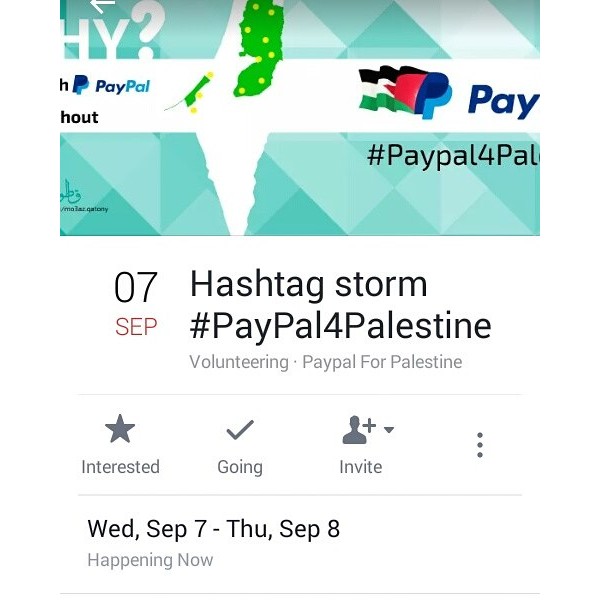
AUSTIN, Texas — PayPal is one of the world’s most popular ways to send or receive money online, but Palestinians are cut out of the action.
Time magazine reported in January that PayPal has 179 million active accounts in dozens of countries, and PayPal payments are widely accepted in online marketplaces from eBay to Etsy.
To sign up, every user needs to have an account at a bank recognized by the service. Since PayPal doesn’t recognize any Palestinian banks, Palestinians are effectively prevented from using the service. Critics says this has impacted not just individuals, but burgeoning industries and even the broader Palestinian economy.
“PayPal’s absence is a major obstacle to the growth of Palestine’s tech sector and the overall economy,” Americans for a Vibrant Palestinian Economy, an NGO that promotes businesses in Palestine, wrote in an Aug. 23 open letter.
The letter, which was co-signed by more than 40 NGOs and Palestinian businesses, continues:
“Without access to PayPal, Palestinian entrepreneurs, nonprofits, and others face routine difficulties in receiving payments for business and charitable purposes. Moreover, PayPal’s absence is problematic for the overall Palestinian economy as tech is one of the only sectors with the potential to grow under status quo conditions of the Israeli occupation which severely restricts the internal and cross-border movement of goods and people.”
For the past decade, Israel has maintained a blockade on Palestinian imports of everything from everyday goods like crayons to crucial building supplies like concrete. Palestinian exports are heavily restricted, too.
Palestine is home to a thriving tech economy, Mike Butcher wrote in a Sept. 9 report. The TechCrunch editor-at-large continued:
“Palestine produces roughly 2,000 IT graduates per year. Both the West Bank and Gaza now have a number of technology companies which, ironically, see tech as a way of developing their economy, just as the Israelis do.”
While PayPal doesn’t recognize Palestinian banks, the authors of the open letter noted that many Palestinians live side by side with illegal Israeli settlers, who, purely by virtue of possessing Israeli bank accounts, are free to make use of the service. Israel demolished over 200 Palestinian homes this year, bringing its expansion of illegal settlements to record levels in 2016.
“We believe a company like PayPal, whose actions in North Carolina reaffirmed its commitment to equal rights, would agree that people living in the same neighborhood ought to have equal rights and access to its services regardless of religion or ethnicity,” the letter noted.
In April, Paypal pulled hundreds of jobs out of North Carolina after the state passed the so-called “bathroom bill,” which rescinded local protections for LGBT people, put restrictions on bathroom access for transgender individuals, and banned cities from passing increases to the minimum wage.
PayPal maintains multiple offices in Israel and has invested millions into its businesses there. The company does not seem poised to take a similar stand in Israel in response to the ongoing repression of the indigenous Palestinian population, who face severe restrictions on their movement and frequent attacks by the Israeli military, among other human rights abuses.
After the open letter was published, other organizations that support Palestine soon joined in by urging PayPal to expand into Gaza, launching a petition and social media campaign, #PayPal4Palestine.
“PayPal can make a real material difference for Palestinian people, businesses, and NGOs,” wrote Ari Wohlfeiler, deputy director of Jewish Voice for Peace, in an Oct. 19 email to supporters.

In another message of support sent on Oct. 29 by Ramah Kudaimi, director of grassroots organizing at the U.S. Campaign for Palestinian Rights, wrote:
“Palestinians being denied access to PayPal means they cannot use their services to run a business, or raise money for a charity, or send cash to a relative, or make everyday purchases online. Getting access to PayPal can make a real difference in the lives of so many Palestinians as the struggle for freedom, justice, and equality continues.”
The tech giant seems unmoved by activists and Palestinian entrepreneurs’ requests to do business. The firm sent Butcher a dismissive response to his request for comment.
“We appreciate the interest that the Palestinian community has shown in PayPal,” the company’s representative wrote, but, the statement continued, “we do not have anything to announce for the immediate future.”


